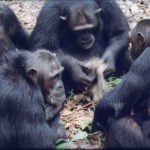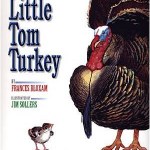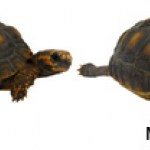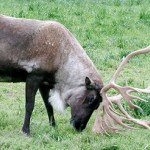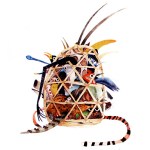Life Sciences
"Two chimps had been shut out of their shelter by mistake during a cold rain storm. They were standing dejeted, water streaming down their shivering bodies, when Professor Köhler chanced to pass." Upon opening the door for the two chimps, Dr. James Leuba recounts, "instead of scampering in without more ado, as many a child would have done, each of them delayed entering the warm shelter long enough to throw its arms around his benefactor in a frenzy of satisfaction."
"Chimpanzees," primatologist Frans de Waal points out, "do not normally hug their caretakers for no reason." It's a compelling…
And it is over! The submission deadline has just passed. No more submissions will be accepted for the 2010 edition of the Open Laboratory.
I have lined up an impressive list of reviewers who will immediately start receiving their first judging lists and the complex process of winnowing down almost 900 entries into the final 50 essays/stories, one poem, one piece of art (for the cover) and one cartoon/comic strip. As usual, the book will be published with lulu.com and we'll try to have the book ready roughly in time for ScienceOnline2011 (we always say that, I know, but this time we'll really…
I've been ill, and pressing deadlines for book chapters and other projects have kept me busy. An inability to post stuff on Tet Zoo always frustrates me, as there's just so much Tet Zoo-relevant stuff to get through. And, on that note: I must have said on many occasions that there are whole tetrapod groups, consisting of hundreds or even thousands of species, that I've either never mentioned at all, or have only touched on in passing. I aim to get through as many as I can while the going's good, but there are just so many constraints and distractions. Anyway...
Among the many incomplete…
There are only FIVE DAYS left for submissions! Dig through your archives, through other people's archives and submit!
Note: if you have recently moved your blog, please e-mail Bora the corrected URLs for your entries
The list is growing fast - check the submissions to date and get inspired to submit something of your own - an essay, a poem, a cartoon or original art.
The Submission form is here so you can get started. Under the fold are entries so far - almost 700 of them, with more coming in each day.
The instructions for submitting are here.
You can buy the last four annual collections…
I've probably gotten a dozen pointers to Gregory Petsko's open letter in support of the humanities, addressed to the President of SUNY-Albany, over the last couple of weeks (the link is to a reposting of the letter at Inside Higher Ed; it was originally on Petsko's own blog). I haven't linked to it or commented on it here, mostly because while I'm broadly sympathetic with his position, after the second use of "[Famous Writer] said [interesting thing] which I'm sure your department of [humanities field] could tell you about, if you hadn't eliminated them," my reaction had shifted significantly…
Brian Dunning's Skeptoid does an excellent job of debunking pseudoscience, so his podcast on DDT is profoundly disappointing. Dunning claims that DDT use did not have a large impact on bird populations, that elitist environmental groups were killing brown children by blocking DDT use and that DDT is effective even if mosquitoes are resistant. None of these claims are true, as I will detail in this post. But first, why did a sensible fellow like Dunning get it all so badly wrong? Well, his primary source for information about DDT was Steve Milloy's junkscience.com. One commenter…
Most people probably only think of turkeys as the delicious main course served with gravy, mashed potatoes, and cranberry sauce (among many other items) at Thanksgiving. I too have mainly been concerned with how best to prepare them for dinner and have admittedly not given much thought to their anatomy or physiology. So, with Thanksgiving literally right around the corner, let's discuss turkeys.
In many species, young birds do not display external sexual characteristics, like differences in feather color. However, knowing the gender of a young bird is very important to poultry breeders to…
Have you ever been at a party with lots of people chatting away, when for some unexplainable reason you felt compelled to turn and look at the front door of your friend's house...and just as you were looking, someone was just coming in from outside and closing the door? You couldn't have heard the door open since there was so much noise already inside - more likely you noticed that other people were looking at the front door. All of this probably happened without any explicit intention or awareness. If several others are all directing their attention at a specific point in space, there might…
Only twenty days left for submissions! Dig through your archives, through other people's archives and submit! I've already started to contact potential judges for this year's anthology. We're ready to roll!
Note: if you have recently moved your blog, please e-mail Bora the corrected URLs for your entries
The list is growing fast - check the submissions to date and get inspired to submit something of your own - an essay, a poem, a cartoon or original art.
The Submission form is here so you can get started. Under the fold are entries so far. The instructions for submitting are here.
You can buy…
As global warming progresses, habitats change in their suitability for various life forms. It may be that moose will not be able to live in Minnesota in the future; Of the two resident moose populations, the one that lives in the area more affected by global warming has pretty much died out probably due indirectly to the effects of increased temperature. There are regions of the rockies where entire forests are dead because of temperature changes. And so on.
Imagine a large flat landscape. As one moves north vs. south, average annual temperature changes, as does the number of days of…
This week marked the release of Brian Switek's (blog, twitter) first book, Written in Stone. I got my hands on a review copy a few weeks ago, and I have nothing but good things to say about it. (Disclaimer: I was provided with a free review copy of the book, without any expectation that I'd review it on my blog or elsewhere.)
Written in Stone is a highly-accessible, engaging book which takes the reader simultaneously through the story of vertebrate evolution and the story of the scientists who - quite literally - uncovered it. The book's main success might be in its seamless transition back…
There is only one month left for submissions! Dig through your archives, through other people's archives and submit! I've already started to contact potential reviewers for this year's anthology. We're ready to roll!
Note: if you have recently moved your blog, please e-mail Bora the corrected URLs for your entries
The list is growing fast - almost FIVE HUNDRED posts have been submitted so far! Check the submissions to date and get inspired to submit something of your own - an essay, a poem, a cartoon or original art.
The Submission form is here so you can get started. Under the fold are…
One of the toughest concepts to grasp about evolution is its lack of direction. Take the classic image of the evolution of man, from knuckle-walking ape to strong, smart hunter:
We view this as the natural progression of life. Truth is, there was no guarantee that some big brained primates in Africa would end up like we are now. It wasn't inevitable that we grew taller, less hairy, and smarter than our relatives. And it certainly wasn't guaranteed that single celled bacteria-like critters ended up joining forces into multicellular organisms, eventually leading to big brained primates!…
There are about 3800 lizard species living on the planet today; accordingly, it can sometimes be a bit difficult to keep track of them all. Furthermore, new species are described on a very regular basis, and there's little doubt that many more species await discovery. Matty Smith (from New Zealand) recently encountered the lizard you see here while in Tonga, and he's been having trouble identifying it.
Ever one to take on a tetrapod-themed identification challenge, I had a go at identifying it, and I'd be interested in your opinion should you be able to help.
It's clearly a skink (as…
Our university library is having a book sale today, one of those unfortunate but necessary events where they purge old or duplicate items from the collections to make room for new books, and I had to make a quick browse. What did I discover but an old children's book that startled me with fearful and powerful remembrances — this is a book that I checked out from the Kent Public Library when I was ten years old.
That's the Golden Guide to Mammals by Herbert S. Zim and Donald F. Hoffmeister, copyright 1955. It features "218 ANIMALS IN FULL COLOR", with maps of their distribution and short…
This barking dog is not very smart. But it could make a good Republican. The only thing harder to understand than Michele Bachmann is the Republican Party. Bachmann is hard to understand in this way: How can a person with her mind be an elected member of congress?!?!??? The Republican party is hard to understand in this way: How can a party that is trying to become more rather than less relevant keep putting Michele Bachmann on the podium in places like the National Party Convention and, most recently, at CEPAC??!?!?!?
~ A timely repost ~
I can't explain any of this, but I can at…
Fifty-two years ago the average American home cost $30,000, Elvis Presley wooed listeners with Hard Headed Woman, and the hula-hoop was introduced. That same year, 1958, a team comprised of a groundbreaking engineer -- Dean Franklin -- in concert with two exceptional physicians -- Drs. Robert Rushmer and Robert Van Citters - was laying the foundation for what would eventually become a radical new approach to health care: the noninvasive imaging and treatment of the heart. The discoveries of these pioneers would eventually lead to a doctor's ability to see the heart without cutting open the…
Meet Rio.
Rio is a California Sea Lion (Zalophus californianus). She was born in captivity at Marine World in Northern California, and due to insufficient maternal care from her biological mother, she was transferred to the Long Marine Laboratory at UC Santa Cruz when she was just a few days old. There, she was raised by a human surrogate mother, in the context of an imprinting study. She's got a pretty good life. She gets all the fish she could want, and has 3 other pinniped (seals, sea lions, otters) friends at the lab. There's Burnyce, a female Northern elephant seal, Sprouts, a male…
I really must get this series on pouches, sacs and pockets finished. Last time, we looked at baleen whales (and then I got distracted by Caperea): in these animals, a large, inflatable laryngeal sac is used in producing loud, resonating noises (though roles in gas storage or the mechanics of exhalation have also been suggested).
Another ventrally located laryngeal sac is present in the Reindeer Rangifer tarandus [photo above, by Karen Laubenstein, from wikipedia, shows an Alaskan reindeer with wonderfully elaborate antlers]. The sac originates from the trachea close to the epiglottis, is…
Wildlife of Vietnam, by Brendan Wenzel
This bundle of exotic animals by Brendan Wenzel is whimsical, yet unsettling. On the one hand, it would be perfect for a children's book; I imagine a tale in which the animals overcome their natural animosities, cooperate to free themselves, dump a hapless and ineptly nonthreatening poacher in the river, and return safely to their various homes, in the happiest of ecological endings. But we all know that's not how the story really goes.
Wenzel, a New York illustrator who until recently lived in Vietnam, says his work was inspired by the worsening…
